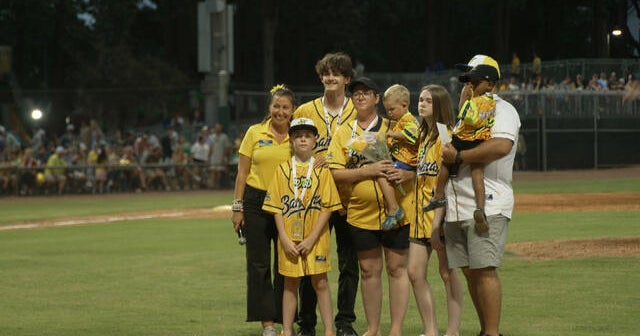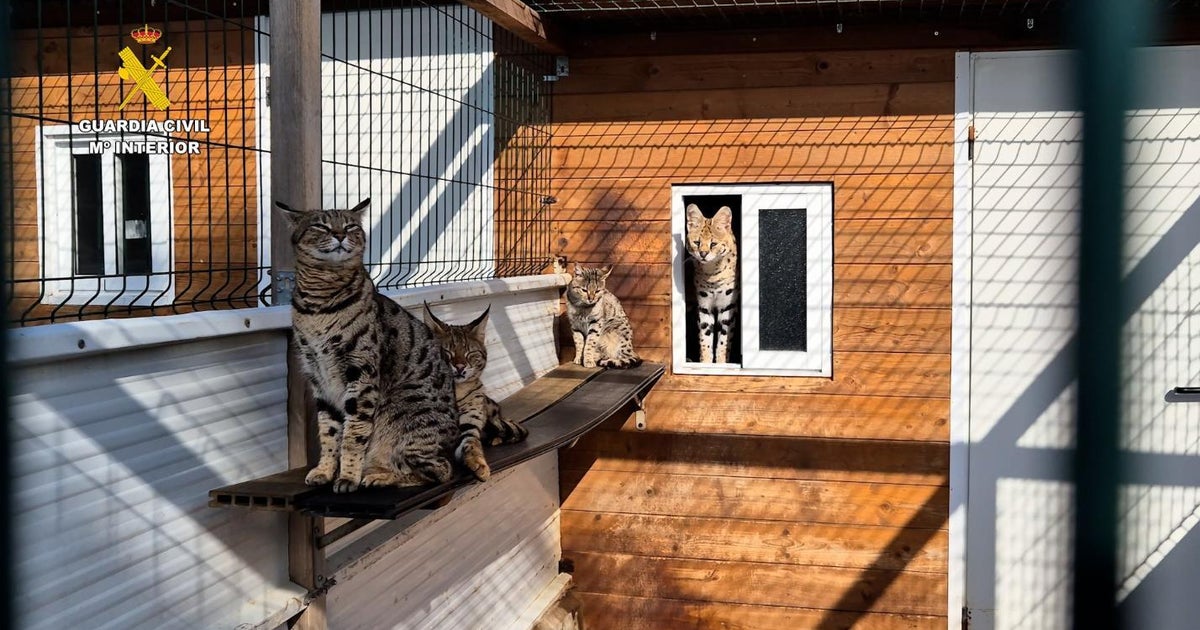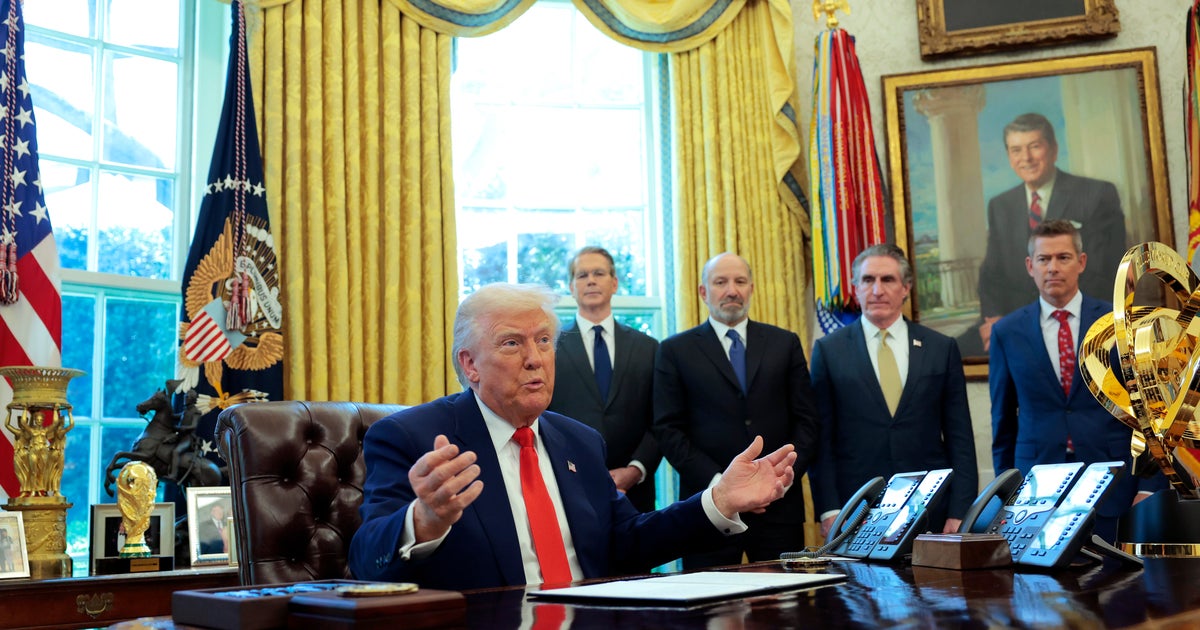How the Savannah Bananas celebrate families
The Savannah Bananas are all about family.
Sure, this exhibition baseball team is also about the game. Its players demonstrate incredible athletic ability — tossing their gloves aside and catching pop-ups with their bare hands while performing a backflip, connecting with a pitch and running to first base on stilts, catching balls in the infield and bouncing it between their legs before throwing it to first.
But for the Savannah Bananas, the game is about more than the final scoreboard. For them — and the other teams who play the derivation of the game they have branded “Banana Ball” — baseball is about bringing together people of all ages and entertaining them.
“There are so few things in life that you can bring multiple generations to and they can connect over,” said Emily Cole, wife, business partner, and co-owner of the Savannah Bananas with Jesse Cole. “One of the most fulfilling things for us is hearing from a family that the toddlers came, mom and dad came, and they brought their parents or they brought their in-laws. And they all sat down for a few hours together and connected.”
Banana Ball certainly has found an audience: the games have sold out Major League Baseball stadiums, including Fenway Park in Boston and Citizens Bank Park in Philadelphia, where they played to a completely sold-out, standing-room-only crowd of 45,000 last fall.
In between the action of trick plays on the field, Banana Ball has programming for everyone. Before a pitch is even thrown, the players honor the Banana Baby, a local infant dressed in a banana costume who’s lifted aloft while players kneel around and “The Circle of Life” plays. During the game, the Banana Nanas showcase grandmas on the field doing choreographed dance routines. As players step up to the plate to bat, their walk-up routines include elaborate lip-synching to artists like Kendrick Lamar, the Village People, and Taylor Swift.
Owner Jesse Cole says it is all in service of bringing generations together.
In an interview with 60 Minutes correspondent Lesley Stahl, Cole recounted a man who approached him at a recent game. “He goes, ‘You gave me something that my daughter and I can bond over together. you have no idea how much this means to me,'” Cole recalled the man saying. “And for me and, you know, with two daughters, you’re always trying to find those things you can connect with your daughter.”
The Coles’ own family has influenced what they use Banana Ball to put a spotlight on — including foster children. Licensed foster parents themselves, the couple had one biological son when they were called to take in a two-year-old girl. A year later, another call and another placement — this time, a newborn baby girl who had tested positive for illegal substances in her system.
“The goal of foster care is to just walk alongside these kids and these families until they can reunify safely with biological family,” Emily Cole said. “So that was always our goal, was to just help these kiddos and welcome them into our family, but then, you know, send them home when time was ready.”
In the Coles’ case, the time to reunite the foster children in their care with their biological families never arrived. Jesse and Emily have since permanently adopted both girls.
Now, to honor other families who foster kids in need, the Coles have created “Bananas Foster,” a nonprofit that celebrates and educates about foster families. At each Banana Ball game, a foster family is called to the field to be recognized. Often, the crowd gives them a standing ovation, recognizing foster parents that are otherwise likely seldom thanked for their work.
“We believe we have a responsibility to just do good things in the world,” Emily Cole said. “And of course we’re creating joy every night for people, but we know about this need in foster care, and fortunately we have this platform now, that we saw an opportunity to be able to use our platform to talk about something that is a topic in society that’s not touched on a lot.”
The video above was produced by Brit McCandless Farmer and edited by Scott Rosann.










